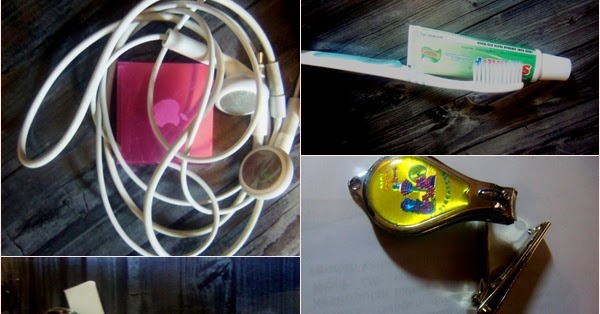Consider again if you frequently exchange or lend each other clothes or lipstick with friends . Exchanging personal items with others turned a risk of spreading many diseases that may even yet we feel the symptoms .
One study found an astonishing fact that a tester or makeup samples provided for a try in the big stores found to contain E. coli , Staphylococcus , and Streptococcus . Bacteria such as E. coli that cause indigestion is generally passed from the hands of people who do not wash their hands after defecation , then touches the sample . The situation may very well occur in makeup and other items that are used interchangeably . Here it is these objects .
Clothes
You need to know that the bacteria are always in every surface of the skin of our bodies. Although harmless, these bacteria can sometimes cause infection. Underwear can even contain germs from feces and mildew from genital infection. The danger, these germs can stay on the fabric for a long time. If the clothes are not washed properly, then the bacteria can also spread to other clothes that are washed simultaneously. This is why the clothes, especially underwear, need to be replaced every day and it is recommended to not be lent to others. Certain clothes, such as sports clothes and clothes used for cooking, must be washed immediately after being charged.
Towel
Towels are used by more than one person can increase the risk of the exchange of germs between people who use the towel. Always bring your own towels whenever traveling or exercising.
Tooth brush
Toothbrushes used simultaneously by more than one person raised the risk of hepatitis C infection because of possible exposure to blood containing hepatitis C. If you forgot to bring a toothbrush while staying, try to buy a new one rather than borrowing the property of others.
Shaver
Exfoliate the skin and then blood is a risk that may occur when someone shave, hair or beard. That is why razor risky contain blood which then can spread certain diseases, such as hepatitis C, if it is used interchangeably with other people.
Nail clipper
Walking barefoot in public bathrooms can pose a risk of toenail fungus. Similarly, using a nail cutter interchangeably with others who are first exposed to the fungus. This fungus is generally proliferate in moist and warm environments, and can affect the fingernails, toenails, and the skin around the nail. In a family, it is advisable for each family member has their own nail clippers.
Comb
Ringworm of the scalp and lice are a nuisance that is often experienced by children around the age of 3-11 years. Ringworm can leave rounded reddish rash or hair loss. While fleas can multiply quickly and make itchy scalp. Ringworm and lice can easily be spread and transmitted through the comb are used interchangeably. So also with the use of helmets and caps that are used more than one person.
earphone
Infection in the outer ear turned out to be caused by the use of headphones that are not clean. If not treated properly, the infection can spread and result in the worst risks, such as loss of hearing. Therefore, in addition to clean the earphones carefully on a regular basis, it is important to not exchange this thing with others to reduce the risk of spread of infection.
finery
Eye infections, such as conjunctivitis, can be transmitted easily through makeup tool used interchangeably. Even seemingly simple habits, such as borrowing and use lip gloss (lipgloss) of the companions, may increase the risk of transmission of herpes labialis. Diseases caused by herpes simplex virus can cause blisters on the mouth bubble.
Therefore, it is advisable to minimize or avoid the use of makeup tester. Mainly used on the eyes, such as mascara and lipstick on the lips. If you often use the services of a professional groomer, ask if they use disposable makeup or makeup always wash them after putting on one person.
If it is difficult not to share dressing tools, at least broom with alcohol and dispose of the uppermost layer, for example on new lipstick used others for their efforts to reduce the risk. For eyeliner, look on before reuse.
Basically, it is advisable to avoid exchanging personal objects that involve direct contact with the skin and mucous membranes (such as the mouth and eyes), including soap and drinking glasses or bottles. Conversely, if your stuff has already loaned to a friend, try to wash them thoroughly with warm water to kill the germs that may be present.

0 Response to " 8 personal items that should not be loaned"
Post a Comment